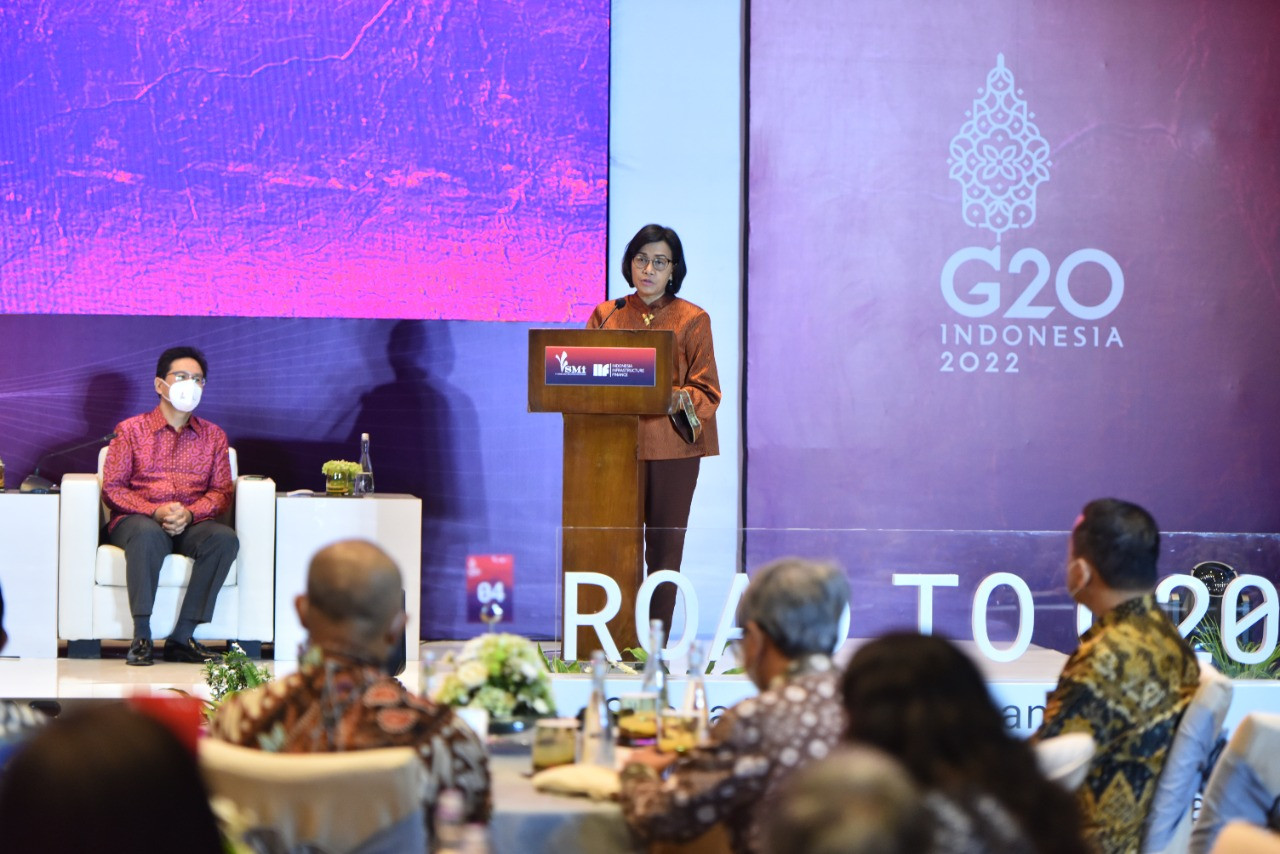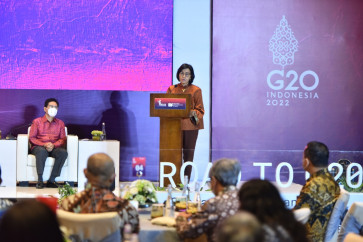Popular Reads
Top Results
Can't find what you're looking for?
View all search resultsPopular Reads
Top Results
Can't find what you're looking for?
View all search resultsGreen taxonomy: G20's beacon for transitioning to a green economy and beyond
The G20 must look beyond the green taxonomy to developing social and sustainable taxonomies to push for wider, more comprehensive coordination toward achieving the SDGs.
Change text size
Gift Premium Articles
to Anyone

The Group of 20 Finance Ministers and Central Bank Governors (FMCBG) have pledged to tackle climate change and protect the environment, including the prevention of biodiversity loss. They are committed to realizing the Paris Agreement through a complete range of fiscal, market and regulatory mechanisms. However, implementing their commitment will be challenging and too slow.
The G20, as a platform comprising the world's most influential economies, has a pivotal role in accelerating these commitments, especially for Indonesia, the holder of this year’s G20 presidency. One thing that must be done to support the green economy transition, one of the current G20 presidency’s priorities, is to forge stronger coordination among G20 members toward initiating a more comprehensive green taxonomy that goes beyond the “green” category.
There are at least three fundamental reasons why the green taxonomy is important and relevant: 1) worsening impact of climate change, 2) less ambitious Nationally Determined Contribution (NDC), 3) financing gap in climate adaptation and mitigation.
In recent years, signs of climate change have become glaring, including in Indonesia. In 2021, the National Disaster Management Agency (BNPB) reported a total of 2,943 disasters, comprising 1,288 floods, 623 landslides and 677 tornadoes. The BNPB further explained that most disasters were classified as hydrometeorological disasters and strongly influenced by climatic conditions. The Indonesian Forum for the Environment (Walhi) has predicted that hydrometeorological disasters in Indonesia will increase 7 percent this year.
Despite the worsening impact of climate change, financing for high greenhouse gas (GHG) emitting sectors continues to accelerate, including the coal industry. In 2014-2019, bank loans for coal-fired power plants alone reached US$19.4 billion. A number of national banks were involved: Bank Mandiri ($2.46 billion), BNI ($1.83 billion), Bank BRI ($1.76 billion) and BCA ($820 million).
The 21st United Nations climate conference (COP21) in 2015 therefore led 196 countries, including Indonesia, to adopt the Paris Agreement, the first universal and legally binding commitment on climate change. The need for urgent action has been translated into the ratification of this agreement.
As a party to the treaty, Indonesia ratified the agreement in Law No. 16/2016. More specifically, the country is committed to reducing GHG emissions by 41 percent with international assistance or by 29 percent through “business as usual” as stipulated in the Nationally Determined Contribution (NDC). Following the agreement’s ratification, the Financial Services Authority (OJK) issued a regulation on implementing sustainable finance among financial services institutions, issuer companies and public companies, followed by a regulation on green bonds issuance and terms.



















